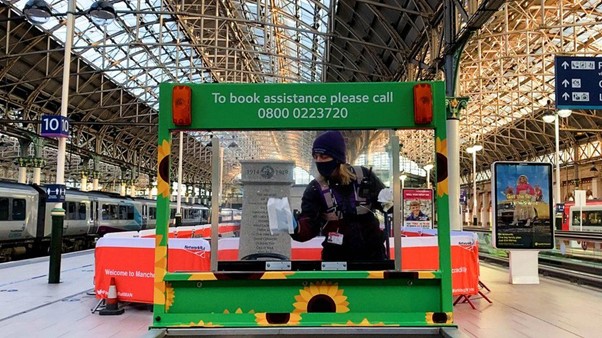A study sampling the environment at four major railway stations in England has found no traces of the virus which causes COVID-19.
The research, commissioned by Network Rail with laboratory analysis carried out at the MRC Centre for Environment and Health at Imperial College London, collected surface samples from four of the busiest rail stations in England, swabbing major touch points – such as escalator handrails, ticket machines and benches – as well as taking air samples from station concourses.
Samples were collected from London Euston, Birmingham New Street, Liverpool Lime Street and Manchester Piccadilly in January and in June 2021, as well as on several inter-city train routes, before analysis for the presence of SARS-CoV-2 virus by Imperial researchers.
All lab tests showed no COVID-19 contamination of any surface tested or airborne particles of the virus in the station or on trains.
Dr David Green, Senior Research Fellow in the MRC Centre for Environment and Health, Environmental Research Group within Imperial’s School of Public Health, explained: “In the same way that a swab is used to take a COVID-19 test in the nose and throat and sent to the lab, we use a filter to collect any virus particles in the air and swabs to collect viruses on surfaces.
“This approach provides a way of quantifying the amount of virus circulating in these public environments and the effect of mitigation strategies like cleaning and wearing face coverings. This is part of a wider programme of work with the public transport sector to understand where this virus is most prevalent so that we can return to pre-pandemic activities as safely as possible.”
The conclusions from the independent report say that enhanced cleaning methods across the rail industry and widespread wearing of face coverings by passengers are key reasons for the negative results.
A copy of the full report is available on request from Network Rail.

